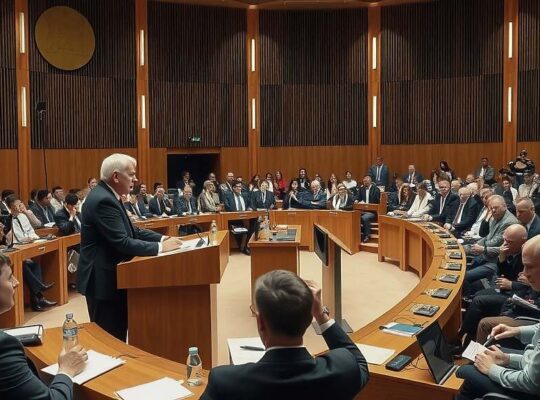Germany’s Justice Minister Stefanie Hubig is spearheading a legislative push for a novel corporate structure, the “Gesellschaft mit gebundenem Vermögen” (Asset-Bound Company), signaling a significant shift towards prioritizing long-term sustainability over immediate profit maximization. The initiative, currently under intensive development within the Justice Ministry, aims to address a critical gap in the existing legal framework, which often hinders smaller enterprises and startups from pursuing environmentally and socially responsible business models.
Hubig argues that the current legal environment necessitates complex and often impractical workarounds for companies striving for sustained, purpose-driven operations. The Asset-Bound Company structure would mandate that generated capital remains within the company, fostering a more durable and less financially pressured existence. Crucially, it’s intended to allow businesses to align with longer-term visions, moving beyond primary consideration of shareholder returns.
The proposal has generated cautious optimism, particularly among the nation’s influential Mittelstand (medium-sized businesses). Günter Krings, a parliamentary vice-chairman for the CDU, highlighted the potential benefit for those Mittelstand companies lacking a familial succession plan, suggesting it could safeguard their structure, location and workforce against the pressures of external sales or fragmentation. He emphasized, however, the need for robust safeguards to prevent potential abuse of the system, a point echoed by observers keen to see the initiative avoid unintended consequences.
While lauded as a progressive step toward a more responsible and resilient German economy, the legal implementation is acknowledged to be complex. Minister Hubig’s commitment to swift progress is tempered by the understanding that ensuring the Asset-Bound Company structure fulfills its intended purpose – truly fostering long-term value creation and mitigating risks – will require meticulous legal drafting and careful consideration of potential unintended ramifications. The initiative represents a calculated gamble by the SPD-led government to reshape the corporate landscape, prompting a critical debate about the fundamental purpose and responsibility of businesses in the 21st century.












